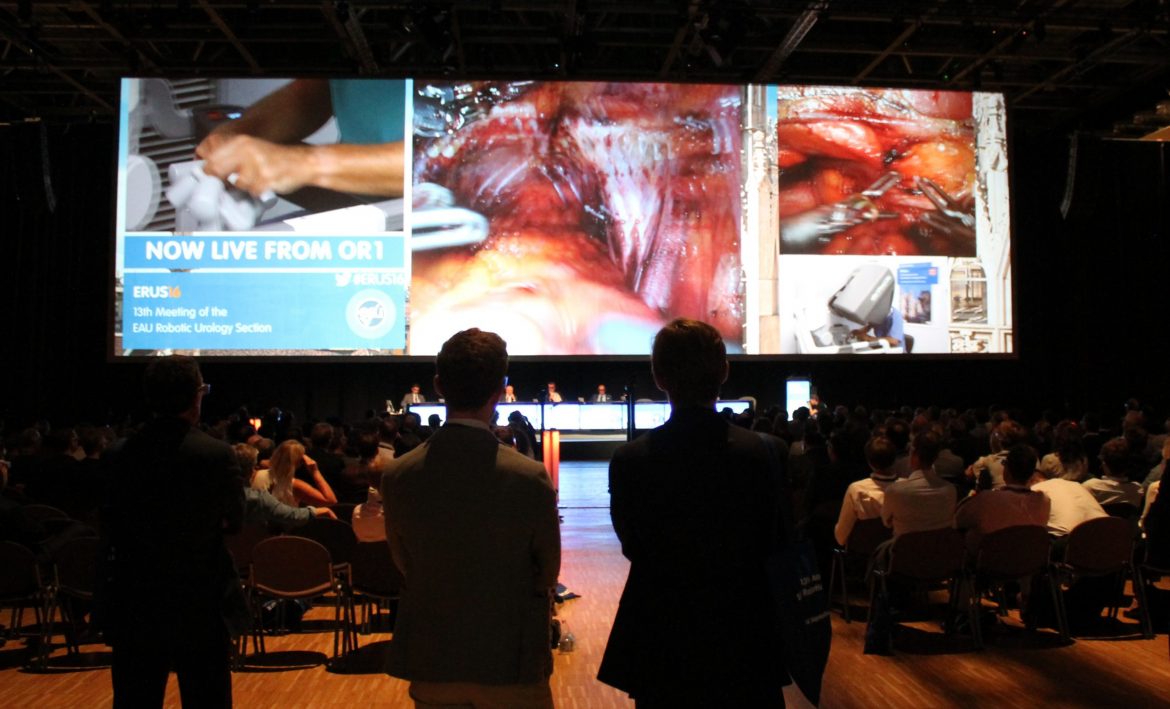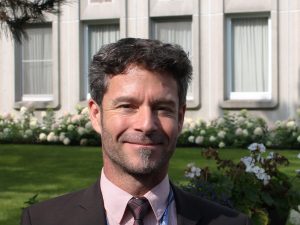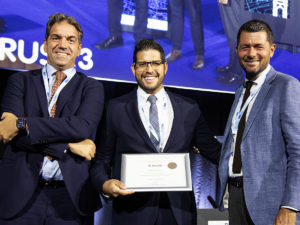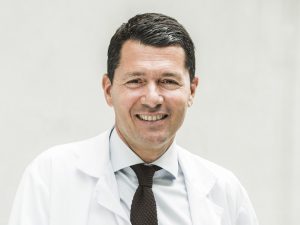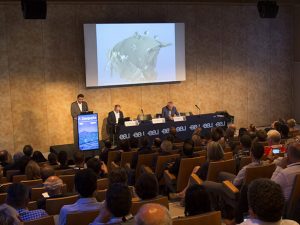ERUS17 is the go-to scientific meeting for urologists who are interested to learn more about robotic surgery. It is completely dedicated to the latest developments in robotic urology, has special programmes for beginners and young urologists, and most importantly, it has two days of live surgery and case discussions. We spoke to Prof. Nicolaas Lumen (Ghent, BE) about the current state of robotic urology and the educational value of live surgery. Prof. Lumen is co-chairing Live Surgery Session V on Wednesday, September 27th.
Prof. Lumen: “The ERUS meeting gives urologists the unique opportunity to come (and stay!) in contact with colleagues and to share their experiences. For state-of-the-art robotic procedures, it is important to compare your technique with the technique of expert high-volume surgeons. Some technical details or refinements might have serious impact on the outcome of your own surgery.”
“Furthermore, the meeting gives you the opportunity to see what is new in robotic surgery. Not just new technological developments, but also new indications in the field of robotic surgery that might become standard in the next years.”
Live Surgery
Live surgery attracts big crowds at all of the EAU’s meetings that offer it, evidence of its continued popularity and educational value. Prof Lumen highlights some advantages: “One major advantage of live surgery is that you can learn from troubleshooting during difficulties in robotic operations. You can sometimes see how an experienced surgeon handles an unexpected problem during a robotic procedure. This, as opposed to edited movies which usually show standard procedures without any difficulties.”
“Live discussion, through a moderator adds an interactive dimension that goes well beyond what a surgeon might find in surgical videos on the internet. Showing the entire procedure, even in the background when another case is being discussed allows the audience to focus on some technical details that might not even be emphasised during broadcasting, but of great importance for some attending surgeons.”
Patient safety is the first priority during events that feature live surgery. Consequently, the EAU has established firm guidelines that its events must adhere to in order to be endorsed by the EAU Live Surgery Committee. Lumen: “In order not to jeopardise the patient’s welfare, a correct indication for the (live) surgery is of utmost importance, as well as adequate briefing and preoperative discussion with the guest surgeon.”
“It is also important that the guest surgeon is able to operate as he or she would at home. The quality control of the EAU-endorsed live surgery label is very important to obtain this. Of every procedure, complications, functional and oncologic outcomes are measured, evaluated and communicated with the EAU.”
At all times, a patient advocate is on hand to ensure that the patient receives the best possible care and interrupt the broadcast if necessary. Lumen: “Thanks to all these precautions for the patient’s welfare, I think it is ethically acceptable to continue with live surgery as educational tool.”
Hot Topics
“As a delegate at ERUS17, I will certainly be following the debate “Pathology reports in radical prostatectomy”, featuring Profs Compérat, Wiklund and Cooperberg,” Lumen explains. “Important decisions, like the need for adjuvant radiotherapy, are made based on the pathology report. These decisions have a major influence on the patient’s quality of life. We are more and more aware that not every extracapsular extension and/or minimal positive margin after radical prostatectomy is an imperative indication for adjuvant radiotherapy.”
“Furthermore, I am very happy to see a talk on the prospective Belgian registry. This is an example of how to obtain data in a prospective fashion in order to evaluate a robotic procedure. It was the base for reimbursement of the robotic material during radical prostatectomy in Belgium.”
“Finally, as a surgeon performing robotic assisted radical prostatectomy, I will follow the live surgery sessions in which a radical prostatectomy is shown. Especially the case of high risk prostate cancer has my attention.”

